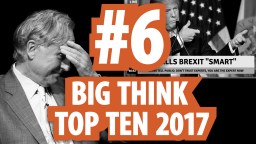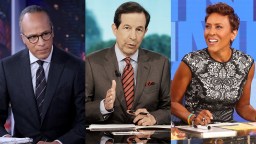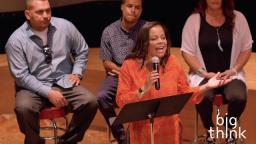The Present
All Stories
The most revelatory answers in life come from complex, diverse populations. Technology can open our eyes to what we’re missing and destroy our subconscious biases in one fell swoop.
▸
4 min
—
with
Hans Monderman believed that societies could make roads safer by making drivers more uncertain, and therefore alert.
Scientists have developed an algorithm that reliably detects the signs of Alzheimer’s dementia before its onset.
Social citizenship is both a feeling of belonging and a definable set of commitments and obligations associated with living in a place; it is not second-class national citizenship.
Science gone horribly wrong. This infographic presents inventors where wiped out by their own creations.
The Internet is all shadows and mirrors—but what if it were the central source of truth? Thanks to Blockchain technology, it’s a future that’s possible.
▸
5 min
—
with
Elitism has come under fire since the recent wave of populist politics. But when we don’t listen to experts, we end up listening to politicians’ lies, says Richard Dawkins.
▸
6 min
—
with
A new study finds a link between a desire for uniqueness and a willingness to believe in conspiracy theories.
How to be media savvy? Sample ideas you disagree with, and be duly skeptical of celebrity journalists.
▸
4 min
—
with
Renowned linguist and public intellectual MIT Professor Noam Chomsky offers his take on the Trump administration and its troubles with Russia.
Is your Facebook wall more of a façade? Data shows that people are brutally honest with Google, but that Facebook is a pack of shameless lies.
▸
3 min
—
with
The Job Guarantee is a policy proposal that would have the state function as an employer of last resort.
A paper argues that the younger generation is no better at technology and multitasking than older people.
Would you rather learn philosophy from James Franco or a professor of philosophy? Well, now you don’t have to choose.
Historian Alfred McCoy explains why American power is coming to an end and lays out his vision for the new global order.
Sometimes single words contain whole worlds. Here are some of the best.
▸
2 min
—
with
You might think philosophy is a boy’s club. We are here to correct that misconception.
What happens to a nation that only reads headlines? They get journalists who chase clicks, rather than facts.
▸
4 min
—
with
We used to use technology. Now technology uses us. Silicon Valley ethicist Tristan Harris explains how the attention economy hijacked our self-worth for profit.
▸
9 min
—
with
Creators of the mega-hit tv show “Game of Thrones” face growing controversy over their next show.
Superfast hyperloop travel gets closer to reality as Elon Musk receives “verbal” government approval for a route linking NYC and Washington.
Reality is whatever your body believes. Virtual reality knows how to hack that.
▸
5 min
—
with
The arts and crafts retailer Hobby Lobby was recently forced to forfeit thousands of illegally imported artifacts.
Businesses have been adopting more diversity programs since the 1990s, but do they actually work?
A new report highlights the increasing violence faced by environmental activists around the world.
Former tennis pro James Blake makes a case for transparency in police departments.
▸
8 min
—
with
He created Windows and made billions of dollars. But that wouldn’t have happened if it weren’t for a few small things in his early life.
California prisons are about as off-off-off-off Broadway as it gets—but that’s where the emotional tools of theatre can make the biggest difference to people’s lives.rn
▸
7 min
—
with
Primatologists and praying farmers show us why it takes a flexible brain, and many perspectives, to unlock truly groundbreaking science.
▸
8 min
—
with





























